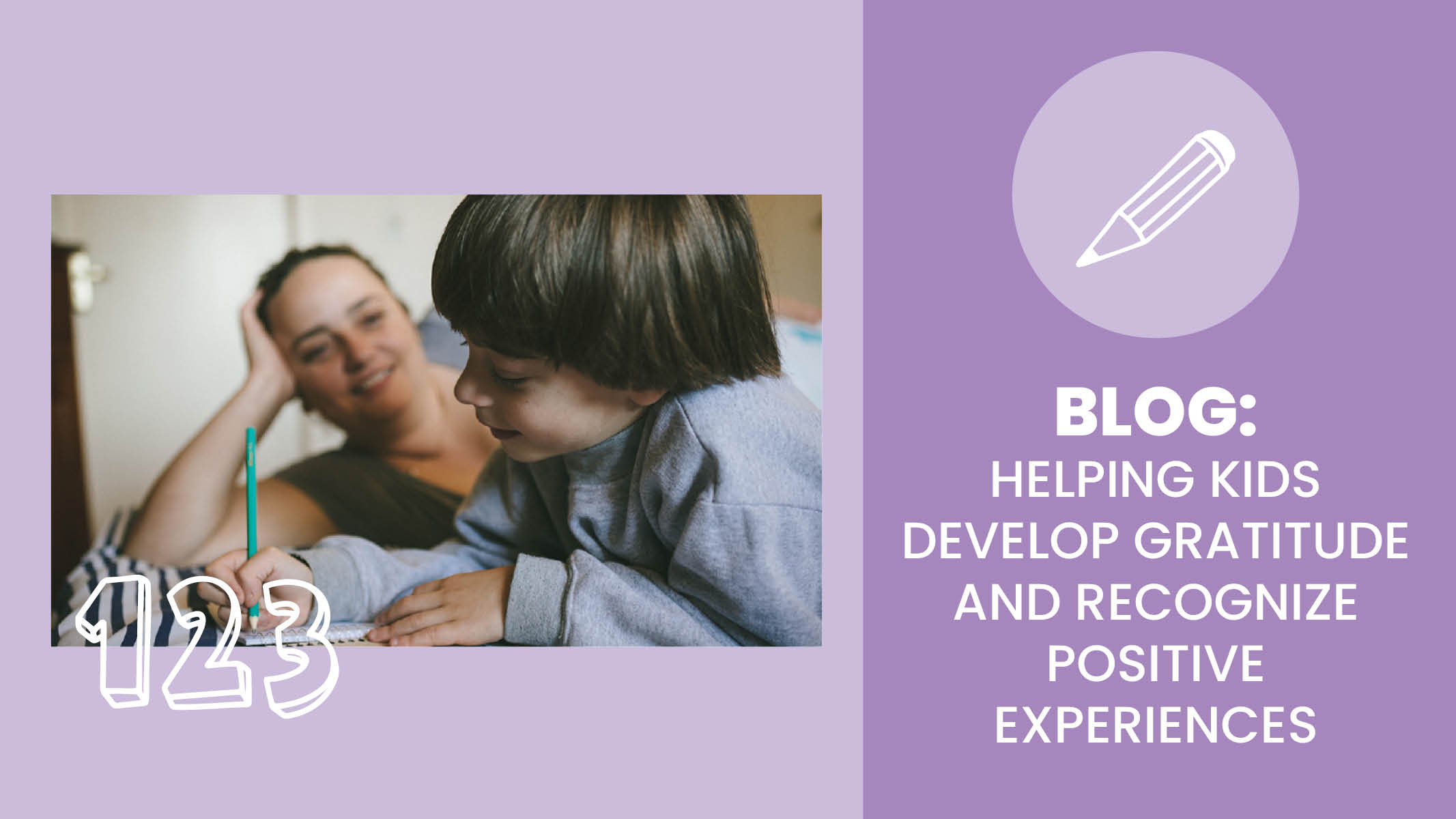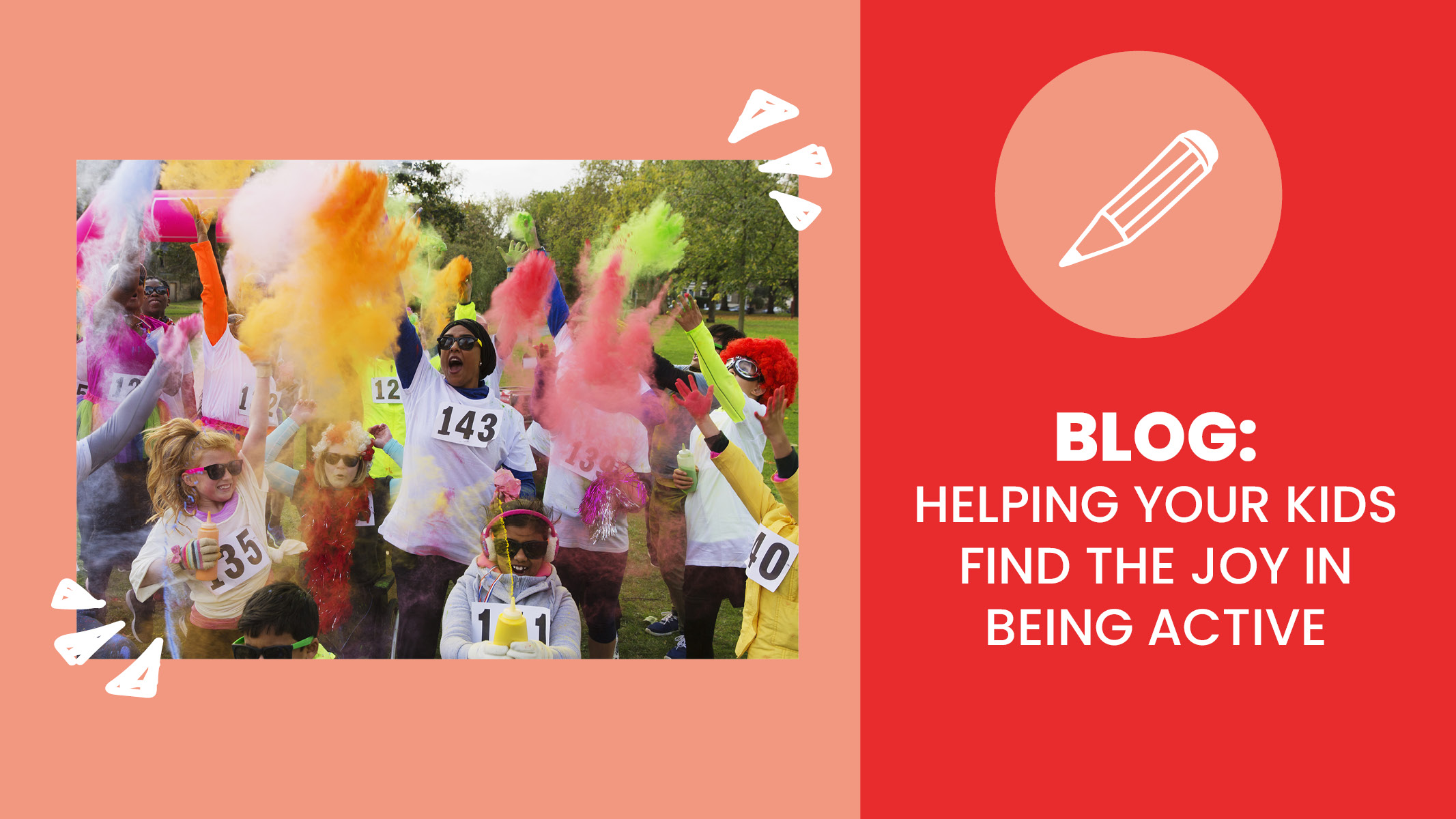We all know how easy it is to get caught up in things that make you feel frustrated, angry, or disappointed, and before you know it, you may reach the end of your day with those feelings still unresolved. Even though your kids or teens may not have the same stresses or daily responsibilities that you do, they can still end their day feeling frustrated, disappointed, or overwhelmed.
Rather than ending the day on a discouraging note, try redirecting your and your child’s attention to positive thoughts. By reflecting on positive things that happened in the day – and considering what caused them – you shift your mindset to the sources of goodness in your life. This practice has been shown to increase happiness, reduce stress or anxiety, and improve sleep quality.
For older kids, teens and even adults, taking five to ten minutes to write down what went well and exploring why it felt positive is a great way to end the day on a good note. Ask your kids or teens to describe how the experience made them feel at the time. If you need help starting the conversation, try:
- What good things happened today?
- What act of kindness did you give or receive today?
- What brought a smile to your face today?
- How did you make meaningful use of your time today?
- What support did you receive from another person today?
- Was there a moment when you felt proud of yourself today?
As you and your kids or teens continue the Three Good Things practice, you can start practicing gratitude throughout the day. Here are a few of our favorites:
- Say thank you. Encourage your kids and teens to not only say “please” and “thank you” but to also appreciate others through their actions – whether it’s thanking a friend for support or acknowledging someone’s kindness. They will begin to realize how much positivity can come from simple acts of gratitude.
- Write thank you notes. Ask your child for a person or a few people they are grateful for. Then, help them write a thank you note to their person saying why they are grateful for them. Use this Gratitude Card Set to get started! This practice will help your kids and teens reflect on meaningful relationships and can also be a great way to strengthen connections with others.
- Fill a gratitude jar or start a journal. As a family, start filling a jar with people, places, or things each person is grateful for. Get the jar out at dinner time and have each person contribute to the jar. When the jar is full, read the answers out loud as a family and reflect on all you are grateful for. For your teens, incorporating gratitude journaling can be a powerful tool in counteracting everyday stresses. Check out our gratitude journal prompts to help guide your teen along the way.
- Help someone in need. If your family knows someone who could use an extra hand, extend some support to them. This could be preparing a meal, taking care of their yard, asking them to get together, or offering kind, supporting words. Even small gestures can go a long way in supporting someone! This is a great opportunity to help your kids and teens boost their sense of gratitude and increase feelings of empathy, which is especially important in building social and emotional skills.
Whether you’re a child, teen or an adult, you will find that adding gratitude and positivity practices each day gets easier with time and can make a real difference in how you feel. You and your family will notice, remember, and cherish the good things in your life.
Ready for More? You may also like:
Fill Your Plate Printable Placemat
Mindset Matters: Building Growth Mindsets in Kids
Positive Self-Talk Coloring Pages


